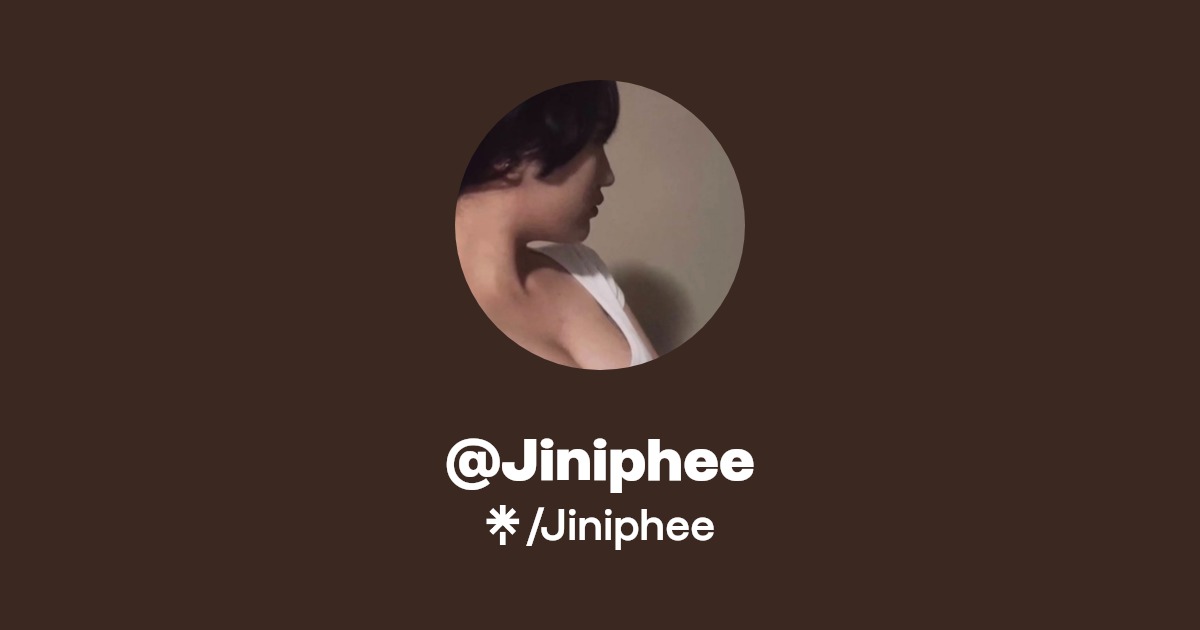In recent years, OnlyFans has emerged as a significant platform for content creators to monetize their work, offering a subscription-based model that allows fans to access exclusive content. However, this platform has also faced challenges, including leaks of private content. One such incident that has garnered attention is the Jiniphee OnlyFans leak. This article aims to provide an overview of the situation, its implications, and the broader conversation surrounding privacy, consent, and digital content in the age of social media.
What Happened in the Jiniphee OnlyFans Leak?
The Jiniphee OnlyFans leak refers to the unauthorized distribution of content that was originally published on the OnlyFans account of Jiniphee, a popular content creator known for her engaging and often provocative material. The incident sparked a significant discussion on various platforms, raising concerns about privacy and the security of content shared online.
How Did the Leak Occur?
While the specifics of how the Jiniphee OnlyFans leak occurred remain somewhat unclear, leaks typically happen due to several factors:
- Hacking: Cybersecurity breaches can lead to unauthorized access to accounts and subsequent leaks of content.
- User Mistakes: Content creators may unintentionally share content outside of the platform or provide access to their accounts, leading to leaks.
- Malicious Sharing: Subscribers may download content and share it without consent, which is a violation of the terms of service for platforms like OnlyFans.
Regardless of the method, the repercussions of such leaks can be damaging for content creators, impacting their careers and personal lives.
Implications of the Jiniphee OnlyFans Leak
1. Privacy Concerns
The leak has highlighted significant privacy issues associated with sharing content online. Many creators rely on platforms like OnlyFans to maintain a level of control over their work. When leaks occur, it violates the trust between creators and their subscribers, leading to questions about the safety of personal content in digital spaces.
2. Impact on Content Creators
The Jiniphee OnlyFans leak serves as a cautionary tale for other creators. The repercussions can be severe, leading to:
- Loss of Revenue: Once content is leaked, it can reduce the incentive for subscribers to pay for access, resulting in a loss of income.
- Reputational Damage: The public nature of leaks can harm a creator’s reputation, impacting their brand and future opportunities.
- Emotional Distress: Creators often invest significant time and effort into their work, and leaks can lead to feelings of violation and anxiety.
3. Legal Consequences
Leaking content without consent is not just unethical; it can also lead to legal ramifications. Content creators may pursue legal action against those who leak or distribute their content, seeking damages for the unauthorized use of their work. However, legal recourse can be complicated and time-consuming, often requiring significant resources.
The Broader Conversation on Consent and Digital Content
The Jiniphee OnlyFans leak is part of a larger conversation about consent and the ethics of sharing digital content. As online platforms continue to grow, so do the responsibilities of both creators and consumers. Here are some key points in this discussion:
1. Understanding Consent
Consent is paramount when it comes to sharing content. Content creators must clearly communicate the terms of use for their work, while consumers should respect those boundaries. The leak emphasizes the need for robust systems that prioritize consent and protect creators’ rights.
2. Security Measures
Both platforms and content creators must take proactive steps to enhance security. This includes:
- Two-Factor Authentication: Implementing additional security measures can help protect accounts from unauthorized access.
- Watermarking Content: Adding watermarks to images or videos can deter unauthorized sharing by making it clear who the original creator is.
- Educating Subscribers: Encouraging subscribers to respect creators’ work and understand the implications of sharing content can foster a more supportive community.
3. Platform Responsibility
Platforms like OnlyFans must be held accountable for ensuring the security and privacy of their users. This includes developing policies and technologies to prevent unauthorized access and leakage of content. They should also provide resources for creators who experience leaks, offering support and guidance in navigating the aftermath.
How Content Creators Can Protect Themselves
In the wake of incidents like the Jiniphee OnlyFans leak, content creators can take several steps to safeguard their work:
- Be Cautious with Content Sharing: Limit the type of content shared on public forums and consider keeping personal details private.
- Use Legal Protections: Creators can explore copyright registration and contracts that outline how their content can be used.
- Engage with Community: Building a supportive community can provide emotional backing, while also fostering respect for creators’ work among fans.
- Monitor the Internet: Regularly check online platforms to ensure that content is not being shared without permission, and take action if it is.
Conclusion
The Jiniphee OnlyFans leak serves as a stark reminder of the vulnerabilities inherent in sharing content online. It underscores the importance of privacy, consent, and the ethical implications of digital content distribution. As the landscape of online content continues to evolve, it is crucial for creators, consumers, and platforms to engage in open conversations about security and respect for intellectual property.
By fostering a culture of consent and implementing stronger security measures, the online community can work towards creating a safer environment for content creators. The Jiniphee incident highlights the urgent need for awareness and action in the ongoing battle against unauthorized content distribution, ensuring that creators can continue to thrive in a digital age while maintaining control over their work.
